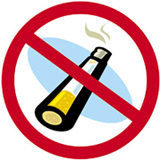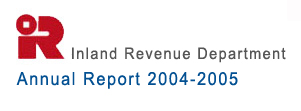|
|
|
| |
|
|
Environmental Report |
| |
| |
Green Management Policy
|
The Department's green targets are mainly related to the consumption of paper and energy in the office as its operations are mainly office-based. To ensure its services to the public as well as its internal operations are conducted in an environmentally responsible manner, the Department has adopted the following principles:
|
(a) |
All the Department's operations should be in compliance with the relevant environmental protection ordinances.
|
(b) |
The Department should avoid, reduce or control environmental pollution arising from its day-to-day work practice. In particular, it should exercise the principle of "Reduce, Reuse and Recycle" in the consumption of materials.
|
(c)
|
The Department will require its contractors to adopt and implement sound environmental management systems and pollution control measures in support of an environmental responsibility for its services.
|
(d) |
The Department will ensure that all staff are aware of its Green Management Policy and will provide information about its Policy and initiatives to those who are interested.
|
(e) |
The Department will provide training for staff to increase awareness and promote continual improvement in protecting the environment and preventing pollution.
|
|
|
|
Green Management and Promotion of Green Awareness
|
| |
 Green Management
Green Management
The Environment and Records Management Committee, composed of green executives from Units and Sections and chaired by the Departmental Secretary, the Department's Green Manager, continued to seek staff suggestions, set directions in our green policies and issued green office guidelines. During the year, floor green ambassadors were appointed for promoting green awareness and implementing environmental programmes on a floor basis.
Green Education
In addition to regularly updating the promotional materials concerning environmental protection displayed on notice boards, and affixing stickers reminding good environmental practice next to the relevant facilities, updated information relating to environmental protection can also be obtained from the "Green Corner" of the department's Intranet. Furthermore, "Green Tips" were disseminated regularly to staff via electronic mail to advise staff of constructive and effective measures easy for them to make green achievements in their daily living. All these measures are targeted to encourage staff to develop a healthy working environment. |
The Department also participated in various recycle programmes and activities such as "Donation of e-Park Card" and "Green Day" which were held by the Community Chest in order to arouse our staff's awareness on environmental protection.
The IRD Sports Association assisted in promoting green awareness and healthy living among staff by organising a variety of activities in the year, including thematic talks on wildlife and habitats in Hong Kong, herbal bliss for skin care, nutrition for busy people and holistic health talk, a green trail walk in support of the World Environment Day 2004's "Walking for a Green and Healthy Hong Kong", and outings and hiking activities in the countryside.
|
|
|
Environmental Protection Performance
|
|
To balance operational needs with environmental care and social responsibility, the Department focused its efforts on maintaining a healthy working environment with satisfactory air quality, and on attaining energy saving, reduction of paper consumption and waste minimisation and recovery.
|
|
Working Environment
|
|
The smoke-free workplace policy was strictly implemented and monitored. All the Department's indoor areas were smoke-free. Non-smoking signs were displayed at conspicuous locations to invite the co-operation of staff and visitors. Departmental circulars were re-circulated regularly to staff reminding them of the importance of maintaining a smoke-free working environment as well as providing green healthy public areas to taxpayers making visits to the Department. Noisy equipment were relocated to centralised processing centres where they would not disturb staff at work.
|
 Air Quality Air Quality
The Department had appointed the Electrical and Mechanical Services Department to conduct an "Indoor Air Quality Management" in its offices located in the Revenue Tower. The results indicated that the Department had complied with the requirements of four key elements indicating the quality of indoor air as recommended by the Environmental Protection Department, namely the intensity of Carbon Dioxide, Air-borne Dust Particulate, Radon and Total Viable Count. The quality of the air in the Department's offices was graded as "Good Class".
|
|
Energy Saving
|
|
 Various measures to conserve energy were taken during the year, including arranging the last-man-out after office hours to switch off electric facilities, identifying and replacing defective equipment, and turning off lights in storage areas and other electric appliances after use. Timers were installed to switch off the lighting of lobbies after office hours in order to lower the electricity consumption. According to the instruction of the Environment, Transport and Works Bureau, the air-conditioned room temperature had been set at 25.5˚C in pursuance of achieving continuous improvement in efficient use of energy and in pollution prevention. The electricity consumption of the year had dropped by some 357,503 kWh as compared with the previous year. Various measures to conserve energy were taken during the year, including arranging the last-man-out after office hours to switch off electric facilities, identifying and replacing defective equipment, and turning off lights in storage areas and other electric appliances after use. Timers were installed to switch off the lighting of lobbies after office hours in order to lower the electricity consumption. According to the instruction of the Environment, Transport and Works Bureau, the air-conditioned room temperature had been set at 25.5˚C in pursuance of achieving continuous improvement in efficient use of energy and in pollution prevention. The electricity consumption of the year had dropped by some 357,503 kWh as compared with the previous year.
|
|
 Waste Minimisation and Recovery Waste Minimisation and Recovery
The Department continued to collect waste collectively and effectively. Bags and boxes were placed at various conspicuous locations to facilitate the collection of recyclable paper, aluminium cans and plastic bottles. Used printer cartridges were also collected for recycling. The Department collected some 221,500 kg of waste paper, 218 kg of aluminium cans, 38 kg of plastic bottles and 5,632 used printer cartridges in the year.
|
|
Reduction of Paper Consumption
|
|
The Department continued to adopt the following measures in the year to reduce its paper and envelope consumption:
|
|
Encourage staff to minimise photocopying and use both sides of paper.
|
|
Reduce submission of paper forms with the launching of e-Leave System in July 2004. This led to savings of some 66,000 sheets of paper per year.
|
|
Encourage both internal and external communication by e-mail and floppy diskettes.
|
|
Make optimum use of the Department's Intranet to enable more environmental friendly, updated and speedy internal information transmission. Administrative Instructions, Staff Handbooks, training materials, reference materials, guidelines, monthly reports etc were uploaded onto the Intranet to facilitate updating and retrieval on-line and dispense with the practice of keeping personal hard copies.
|
|
Circulate and re-circulate Departmental and Unit Circulars/Circular Memoranda/Posting Notices by e-mail.
|
|
Replace the pre-printed forms with templates or use overlay printing. The templates of the forms are uploaded onto the Intranet so that the forms can be printed as and when required.
|
|
Promote the use of multiple screen method in printing on-line enquiries.
|
|
Encourage the public to file tax returns electronically or through other media like diskettes and use the Department's electronic services under the Electronic Service Delivery Scheme.
|
|
Develop the Computer Output On-line Retrieval System to facilitate on-line report viewing, thus obviating the need for printing computer reports in hard copy. The consumption of computer plain stationery for printing computer reports in the year had dropped by some 2,081,810 folds as compared with the previous year.
|
|
Review the need for the preparation of periodical reports, the distribution lists of outgoing correspondence and hard copies required for circulation.
|
|
Launch the e-Seminars for employers and tax representatives to reduce paper consumption by obviating the need to print invitation letters, tickets and handouts.
|
|
|
New Initiatives and Targets
|
The Department will strive to enhance its green performance through formulating and working towards new initiatives and targets of environmental protection. The Intranet and the Departmental Portal will be widely utilised by the Department as a convenient platform for the enhancement of e-office facilities. Continuous efforts will be made to economise on the consumption of electricity and paper.
|
|
|
|
|
|
|

